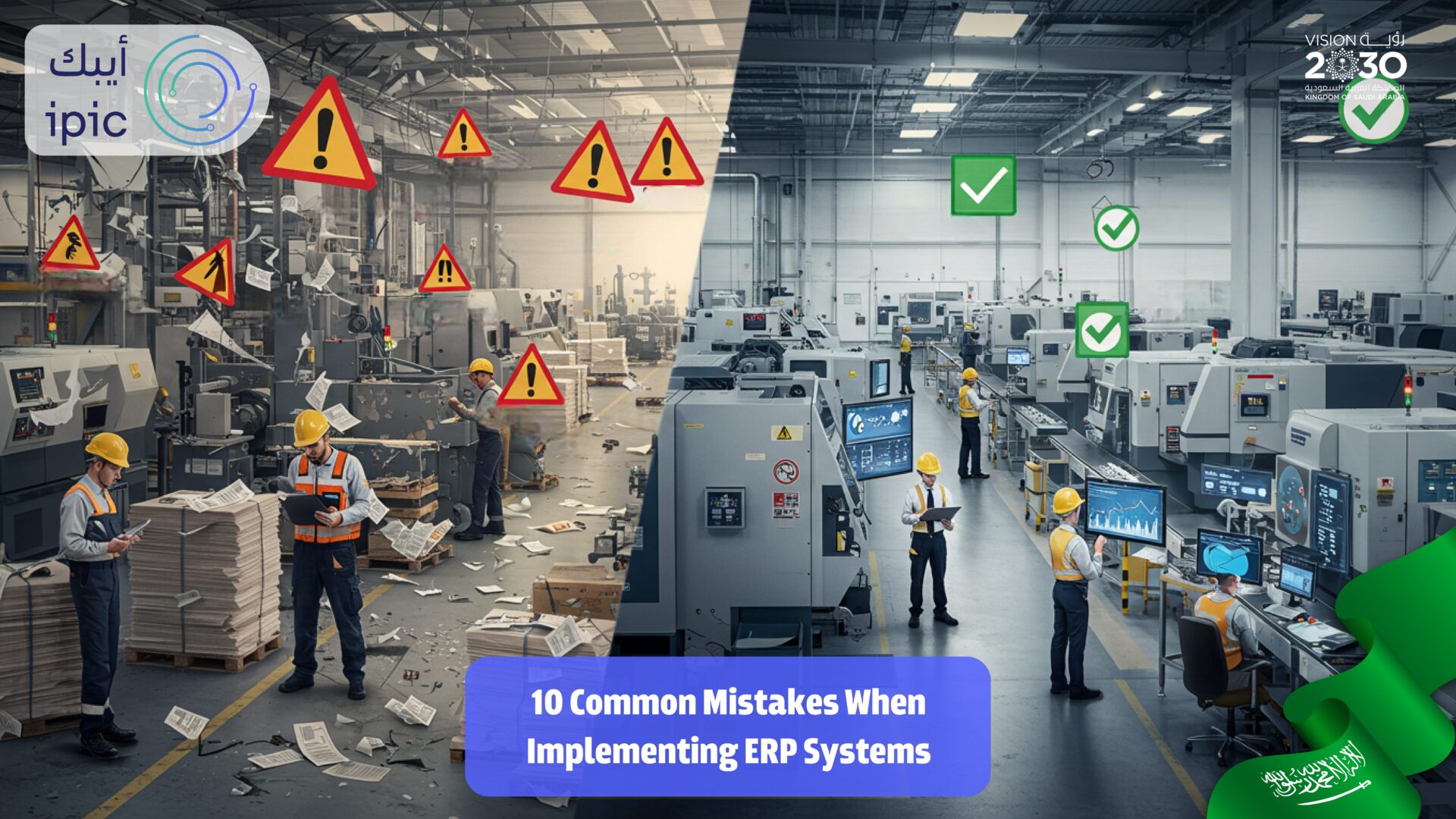10 Common Mistakes When Implementing ERP Systems
1. Lack of Clear Vision
Starting the project without defined goals or a roadmap leads to unsatisfactory results and difficulty measuring ROI.
2. Choosing the Wrong System
Every factory has unique needs. Selecting a generic or unsuitable ERP system may create more complexity instead of solving problems.
3. Weak Involvement from Top Management
ERP success requires strong support from top management, as they are responsible for resource allocation and ensuring company-wide commitment.
4. Not Involving End Users
Some factories focus only on IT teams and ignore the real users of the system. This results in resistance to change and poor adoption.
5. Ignoring Current Process Analysis
Implementing ERP on outdated or inefficient processes simply digitizes the same problems.
6. Over-Customization of the System
Excessive customization to meet every request makes future upgrades complicated and increases costs.
7. Lack of Training and Enablement
Without adequate training, employees struggle to use the system effectively, reducing its overall value.
8. Ignoring Change Management
ERP is not only about technology; it’s about cultural and operational change. Neglecting change management creates resistance from operational teams.
9. Unrealistic Time and Cost Estimates
Factories often fall into the trap of over-optimism, leading to delays and costs exceeding the original budget.
10. No Post-Implementation Plan
Go-live is not the end. Continuous monitoring, regular updates, and technical support are crucial for sustained success.
The Role of IPIC
At IPIC, we help factories avoid these mistakes by:
- Conducting a detailed needs assessment before choosing the ERP system.
- Designing a clear roadmap aligned with business objectives.
- Providing comprehensive training and ongoing support to ensure smooth adoption.
- Focusing on change management to improve employee acceptance of the new system.
Conclusion
ERP success is not only about technology—it relies on careful planning, team involvement, and continuous training. With the right partner like IPIC, your factory can fully leverage ERP to achieve higher efficiency and better resource management.



